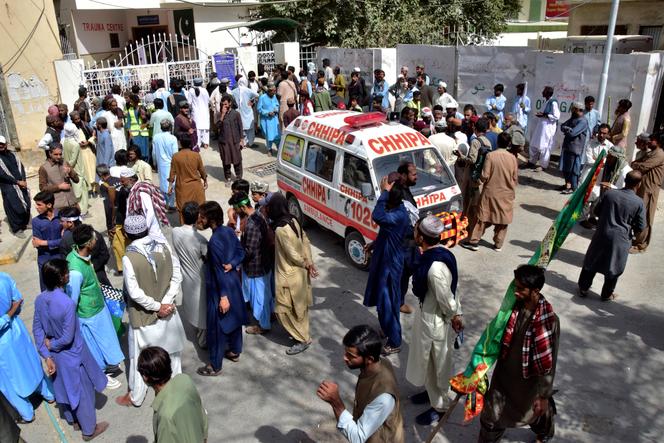


At least 40 people were killed and dozens more wounded Friday, September 29, by a suicide bomber targeting a procession marking the birthday of Islam's Prophet Mohammed in Pakistan's southwestern Balochistan province. While the celebration of the Prophet's birthday is accepted by the majority of Islamic sects in Pakistan, certain denominations view it as an unwarranted innovation.
"A procession of hundreds of people came out of the Madina mosque and as it reached Al Falah road a suicide bomber targeted it," said Abdul Razzaq Sasoli, deputy commissioner of Mastung district. Jan Achakzai, Balochistan's minister for information appealed urgently for blood donors to help treat the wounded. He also announced a three-day mourning period.
Every year mosques and government buildings are elaborately illuminated with strings of lights, and people come march in processions to mark the Prophet's birthday. On the same occasion in April 2006, a suicide bomber killed at least 50 people in the port city of Karachi after detonating a device at a gathering of Sunni Muslims.
Balochistan, Pakistan's least populous province, is also home to several militant groups fighting for independence or a greater share of the region's mineral resources. Pakistan's Taliban, which has stepped up attacks against military and government targets since the return to power of the Taliban in Afghanistan in August 2021, said it had nothing to do with Friday's Balochistan attack.
"The Tehreek-e-Taliban Pakistan (TTP) asserts no connection to this attack, and our stance on bombings in public spaces is unequivocal," the group said in a statement. The regional chapter of the Islamic State group, known as Islamic State-Khorasan (IS-K), has also carried out attacks in the area in the past.
